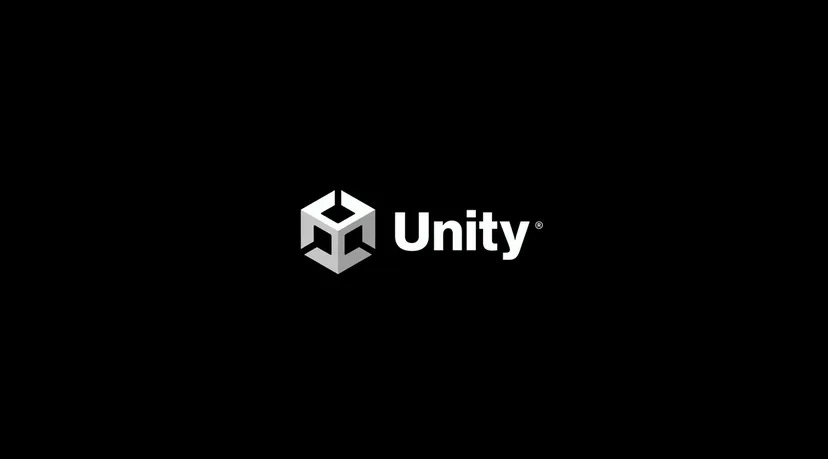Trending
Opinion: How will Project 2025 impact game developers?
The Heritage Foundation's manifesto for the possible next administration could do great harm to many, including large portions of the game development community.
Unity's new "Runtime Fee" will kick in after developers cross specific revenue and install thresholds.

The cost of using Unity as a game engine is once again about to increase. Starting in January 2024, the company will begin charging what it's calling a "Unity Runtime Fee" that is based on the number of users installing games built on the widely-used engine.
The Runtime Fee will kick in after developers cross specific revenue and install thresholds that scale with different subscription plans. For those on Unity Personal or Unity Plus licenses, the fee will kick in after a project crosses both $200,000 in revenue over 12 months and 200,000 total installs.
Developers operating on the Unity Pro or Unity Enterprise licenses will be granted a higher threshold before they begin owing fees. For those devs, the charge will kick in after a title earns $1 million over that same 12-month period and passes 1 million installs.
According to a breakdown sent to Game Developer by Unity, fees will be charged on a monthly basis. The amount charged per install will also vary depending on the license.
Unity Personal and Plus developers will pay a flat fee of 20 cents per install. Pro and Enterprise users will pay a smaller per-install fee that scales downward with the number of installations over the initial threshold. Pro user fees will begin at 15 cents per install and scale downward to as low as .02 cents per install, while Enterprise user fees will begin at 12.5 cents per install and scale down to as low as .01 cents per install.
Fees will also vary depending on what region a game is monetizing in. Unity has set an "emerging market monthly rate" for developers monetizing in countries like India. In those regions, Personal and Plus users would owe .02 cents per install, Pro users would owe .01 cents per install, and Enterprise users would owe .005 cents per install.
Developers of free-to-play games (which have a much higher install rate than premium titles) will have the option to offset this fee by adopting other Unity services, such as its LevelPlay advertising mediation service.
Unity stated in a blog that it is implementing the Runtime Fee in lieu of a revenue-sharing program. The company said it believes "an install-based fee allows creators to keep the ongoing financial gains from player engagement."
As for why Unity has chosen to introduce these new fees, Unity Create president Marc Whitten told Game Developer the company is seeking to "better balance the value exchange" between Unity and developers.
After discussing the ins and outs of the fee, Whitten chose to speak more plainly about why Unity is charging developers an additional fee. As he put it, "we want to make more money so that we can continue to invest in the engine."
In Unity's announcement, the company attributed the fee to the ongoing development of Unity Runtime—the executable that players download with every game and allows games made in Unity to "work at scale."
Unity has not previously charged developers for any services related to Unity Runtime. Its various licensing plans hawk the capabilities of the Unity editor and offer a number of services for live service games including DevOps, monetization, and player analytics.
Whitten explained that maintaining the Unity Runtime executable is an active effort. Even after a game ships, Unity Runtime needs to be frequently updated to operate on platforms that are being constantly updated. "It's quite expensive," he said, adding that the fee was designed to charge developers who have found "scaled success" with their games while giving smaller studios enough time to build their audience before paying additional costs.

There is something eyebrow-raising about the fee structure Unity is offering to free-to-play developers. As mentioned up top, devs who see an excess of game installs based on their business model will have the option to receive a discount on fees if they work with Unity to contract additional services like LevelPlay (LevelPlay itself is a free service, but Unity gets a cut of whatever is spent on ad mediation).
Developers already relying on those services will be in a good position, but developers who use other ad mediation services would have to evaluate if LevelPlay "delivers the value they would expect with it," as Whitten put it. Some may wonder why they're being asked to either pay a fee that could run anywhere from $15,000 to $20,000 per month if they don't switch to Unity's ad mediation service.
Whitten characterized the discount program as being one of many "tools" to help developers ensure the fee they pay scales to the revenue they're earning. "We didn't build this program saying 'you have to use LevelPlay.' It's just another option we have in place for people.'"
He pointed out that such developers will be in a position to benefit from in-app monetization after players download their game, and will not owe Unity any share of revenue from said players.
Our conversation with Whitten took place almost exactly a year after Unity increased the price of its Pro and Enteprise plans. That price bump followed a summer of business moves that angered some of its customers. At the time, Whitten said the company "wasn't talking enough" to the development community, and that it hoped to improve relations in the year ahead.
Whitten admitted that, when chatting with partners about the Runtime Fee, no one was "really excited" to discuss the idea of raising the price of Unity. He said those developers he spoke with did acknowledge Unity's need to invest in Unity Runtime and claimed there was a "strong desire" for the company to continue investing heavily in the engine.

Unity is also making some updates to its licensing plan that developers might find favorable. Developers will no longer face restrictions on using a Unity Personal license if they are coming into a project with funding or make revenue off their game. Said licenses will face higher per-install fees after crossing the threshold, but Whitten said the company's goal would be to transition those developers to a Pro or Enterprise plan, rather than surprising them with an inflated Runtime Fee.
All Unity plans will also be updated with access to a new cloud-based asset storage system, Unity DevOps tools, and Unity's generative AI technology at "no extra cost" starting in November 2023.
Those additions aren't likely to assuage a subset of Unity users who feel the company has lost touch with the community that made it a viable competitor to Epic Games' Unreal Engine. One Unity developer briefed on the Runtime Fee (who requested anonymity in order to speak freely) pointed out the fee might be extra painful for developers who sell their game for less than $10 (like the makers of Vampire Survivors). "Sales will be more costly for developers since they are not asking for a percentage, but a flat fee," they pointed out.
Said developer argued that this fee "screws over indies and smaller devs the most."
After publication, Whitten and Unity reached out to respond to the developer's concerns, stating that the price increase does not impact "The majority of customers." "A large majority of Unity Editor customers are currently not paying and will NOT be impacted by this change," Whitten wrote.
He also sought to clarify that the Runtime Fee is not retroactive nor perpetual. "We do not charge for older installs, only new installs after January 1, 2024."
Some Unity services like Weta Tools and its Game Server Hosting and Matchmaking services targeted traditional game developers, but its completed merger with IronSource and ongoing layoffs in pursuit of profitability have been regarded as moves made with investors, not creators, in mind.
Whether developers view Unity's embrace of generative AI tools as an investor-minded move or development service is unclear. Concerns from the former group about the copyright risks that come with AI proved to be well-founded after one of the first toolmakers invited to Unity's AI marketplace was accused of stealing assets from 3D modelling platform SketchFab.
At the time Unity would only state that the toolmakers violated Unity's terms of service. It did not specify what terms were violated.
Whitten remains optimistic, however, that Unity is on track to build better relationships with its customers. He pointed to the company's attendance at Gamescom and Game Developers Conference as major opportunities to speak with Unity users. The engine maker is also preparing to host Unite 2023 in November, which will mark the first in-person Unite event since the COVID-19 pandemic subsided.
"There's a level of excitement at Unity just to be with all of our creators at our event, he said, adding that the company is getting back to its "pre-pandemic cadence" with regards to how it interacts with its community of developers at physical events.
Update: This story has been updated with additional comment from Unity and a correction to Whitten's job title.
Update (09/13/23): In additional statements given to Axios and Game Developer, Unity said it has tweaked its policy to prevent developers from being "install-bombed" and clarified how titles on Xbox Game Pass and similar subscription services will be impacted.
Speaking to Axios reporter Stephen Totilo, Whitten said Unity has amended the Runtime Fee so developers will now only be charged for an initial installation. The company had previously suggested deletions and re-installs would result in multiple fees and pledged to use its own fraud detection practices to counter potential "install-bombing."
As for downloads made through Xbox Game Pass and other subscription plans, Whitten has explained that studios won't be on the hook for those fees and said distributors will be asked to foot the bill. In the case of Xbox Game Pass, that would result in Microsoft picking up the tab.
Unity has also told Game Developer that "qualifying charities will not be charged for installs," allowing developers to support fundraising initiatives without placing themselves in financial peril.
For more on those changes and the reaction from the development community, which has seen major studios including Among Us developer Innersloth threaten to abandon ship, read our ongoing coverage.
You May Also Like